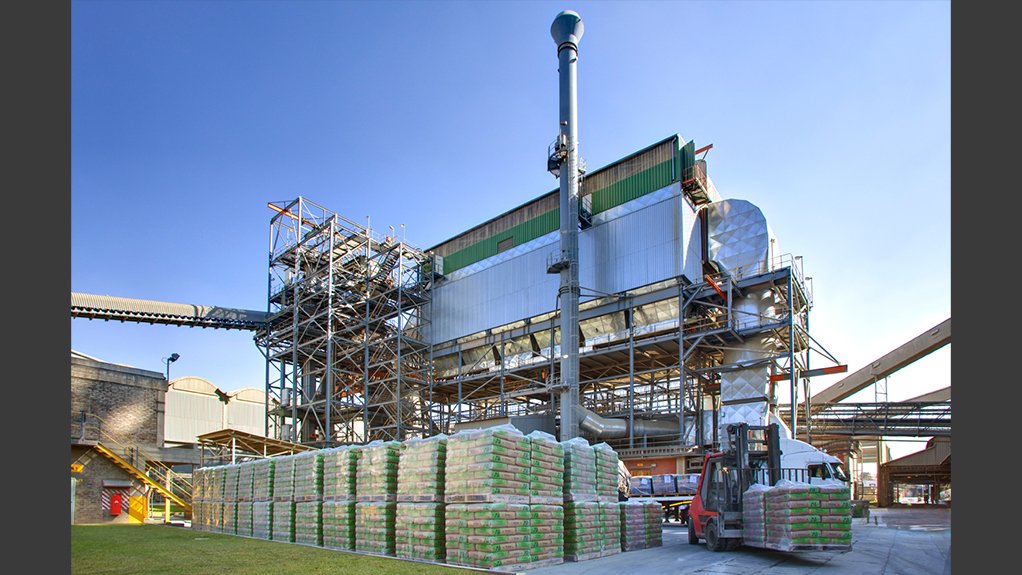

Environment-friendly cement production in SA
The local cement sector has been hailed for making significant progress in reducing its carbon footprint and producing more environment-friendly cement.
Recent research by local cement producer AfriSam, has shown that the use of fly ash and ground granulated blast furnace slag (GGBFS) in cement production leads to a 30% reduction in carbon emissions per tonne of cement.
Fly ash comprises fine particles of coal ash that rise with flue gases from burning coal and it is usually removed by electrostatic precipitators or bag filters. An additional environmental benefit of the use of fly ash in cement production, is a reduction in the amount of coal ash from power stations that is dumped in ash ponds or landfill sites.
AfriSam manufactures cement with up to 70% GGBFS, while still achieving the required strength and explains that fly ash extends the volume of cement while adding valuable cementitious qualities to the final product. This reduces the amount of energy-intensive clinker required and reduces overall energy consumption during cement production. The company further highlights that fly ash can replace the use of traditional non-renewable products in the manufacture of clinker, including limestone and shale, which are costly to mine.
“The use of fly ash in clinker production means less carbon dioxide is produced,” says AfriSam cementitious executive Hannes Meyer. “Usually, calcium carbonate in the limestone must first be converted to calcium oxide, and this generates carbon dioxide. The calcium in ash, however, has already been converted in calcium oxide and silicate form.”
Meyer highlights the importance of research and development into environment-friendly initiatives for a low-carbon future and to help offset the potential negative impacts of carbon taxes in order to ensure the long-term sustainability of the local clinker manufacturing sector.




